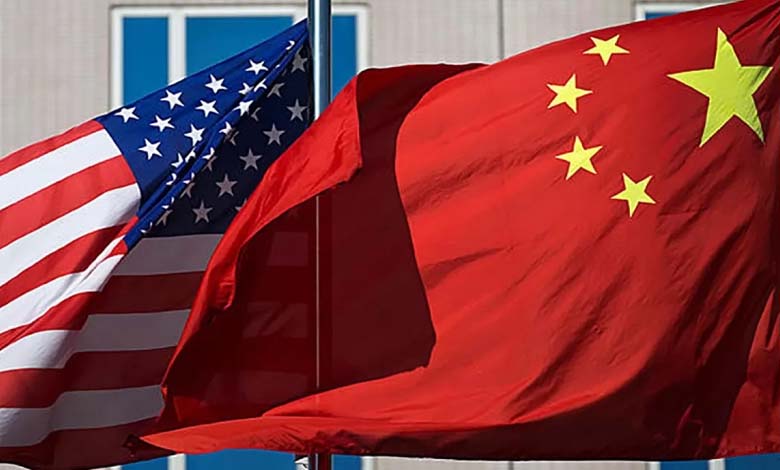American concerns about the establishment of a Chinese Military Base in Oman
The presence of a Chinese base in Oman represents a challenge to the United States, which oversees the central command of its forces deployed throughout the region.

China recognizes the importance of Oman and its strategic location on the Strait of Hormuz and has been actively working to expand and deepen its relations with the country. According to American leaks, they consider Chinese influence in the region a challenge to Washington.
Bloomberg agency reported, citing informed sources, that U.S. President Joe Biden was briefed on a Chinese plan to build a military facility in Oman as part of Beijing’s efforts to deepen its defense and diplomatic relations with the Middle East. According to the agency, Biden was informed that Chinese military officials discussed the matter last October with their Omani counterparts, who expressed their willingness to approve the deal, according to people who requested not to disclose their identity during private discussions. They added that both sides agreed to hold further talks in the coming weeks, but the precise location and what the potential base would include are not yet known.
China does not have official military bases or alliances in the Middle East, but its forces still operate effectively in the region, albeit on a limited scale, through what the United States calls “campaign activities,” where they participate in peacekeeping operations, maritime security, and weapons transport, usually executed by a single service.
Regarding the significance of establishing such a base in Oman, Bloomberg explained in its report that having a Chinese base in Oman would complement Beijing’s other external military facility, which it refers to as a “logistics center” in Djibouti, located in East Africa.
At a time when Chinese leaders seek to secure their interests in the region, they may leverage their success in Djibouti to expand their military and intelligence activities. China established its first external military facility in Djibouti in 2017, and the base is strategically located only 110 kilometers from the Bab-el-Mandeb Strait, a crucial waterway for the transportation of goods between Europe and Asia.
Before opening the base, Chinese companies invested billions of dollars in Djibouti to develop ports, build railways and airports, and establish a multi-faceted free trade zone.
Observers have noted that as China’s interests in the region grow, it aims to create a strategic stronghold to protect its trade along the Strait of Hormuz. Nearly one-third of crude oil transported by sea passes through this vital waterway annually, and the U.S. Department of Defense has designated this strait as a “known focus area” for Chinese military planners.
In 2021, China imported $128 billion worth of crude oil from countries along the Arabian Gulf and the Strait of Hormuz, which is three times what the United States and the European Union imported collectively. Analysts in China have warned that over 45% of the country’s oil imports pass through the strait, calling for increased cooperation with regional partners to ensure the safe passage of energy resources.
For years, the Pentagon has stated that China aims to build more external military logistical facilities in the region, including the UAE and other Asian countries such as Thailand, Indonesia, and Pakistan.
The agency believes that the presence of a base in Oman would pose a challenge to the United States, which oversees its central command of forces deployed throughout the region, including Kuwait, Bahrain, Qatar, Saudi Arabia, the UAE, and Oman.
Oman’s specific importance comes from its proximity to the Strait of Hormuz, one of the most critical navigation passages for oil and liquefied natural gas. The strait becomes a focal point whenever tensions flare with Iran.
China is seeking to deepen its relations with Middle Eastern countries and engage in their issues, including the recent conflict in Israel and Gaza. The Chinese Ministry of Foreign Affairs stated that its special envoy for Middle Eastern affairs, Chai Jun, met with the U.S. Ambassador to China, Nicholas Burns, on Tuesday, and they exchanged views on the Israeli-Palestinian conflict and other topics, according to Reuters.
The Chinese Ministry of Foreign Affairs said on Monday that China would spare no effort to achieve peace in the Palestinian territories during its presidency of the United Nations Security Council, at a time when tensions are increasing in the Middle East.
Wang Wenbin, the ministry’s spokesperson, said in a regular press conference, “China will spare no effort to encourage the Security Council to shoulder its responsibilities, perform its role, build consensus, take responsible and effective actions as soon as possible to calm the current crisis and protect the safety of civilians to achieve peace.”
The Chinese statement comes as Israel intensifies its military offensive on Gaza, and China assumed the rotating presidency of the United Nations Security Council last week. Official media reported that China’s Permanent Representative to the United Nations, Zhang Jun, said that the conflict in the Middle East topped the Security Council’s agenda for November.
China’s special envoy to the Middle East, Chai Jun, has just concluded a tour of the region. Chai, who met with leaders of several countries regarding the crisis, attributed the conflict between Israel and Gaza to the lack of guarantees for the rights of Palestinians.












